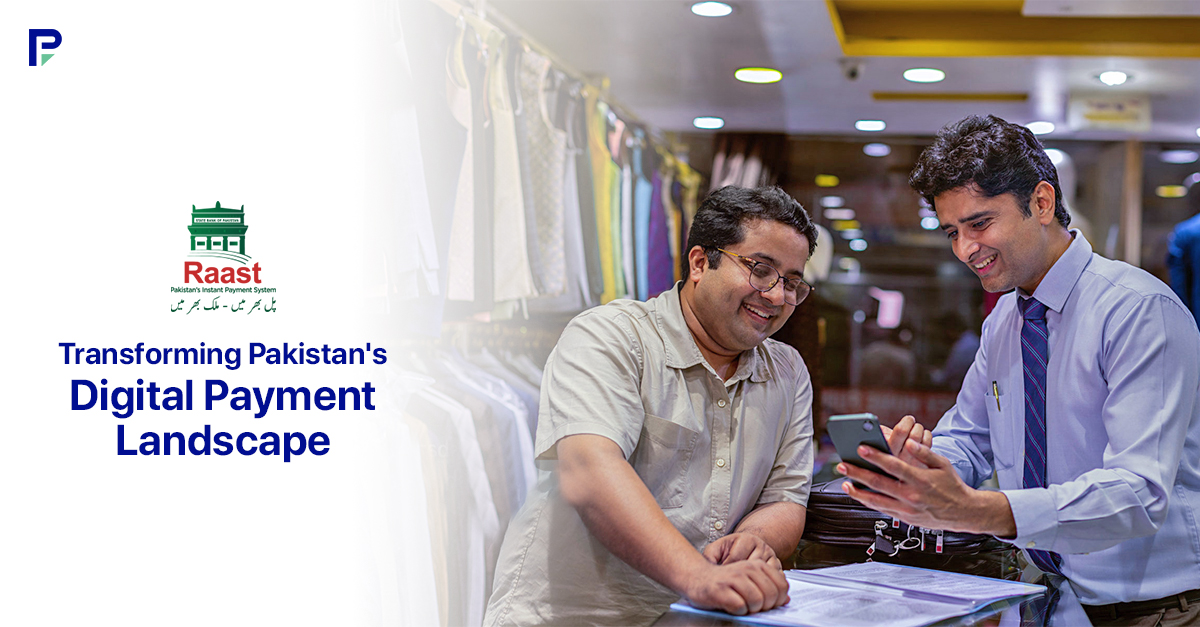The State Bank’s ambitious project, Raast, is on the verge of reshaping Pakistan’s digital payment landscape. The initiative commenced with Person-to-Person (P2P) payments which saw tremendous growth- in 2022, there were 7.9 million Raast P2P transactions with a value of PKR 102.1 Bn. These numbers swelled to 102.1 million transactions with a value of PKR 3.085 Tn in 2023. With the success and growing adoption of P2P, the State Bank is now ready to move forward with the next phase of Raast: merchant payments.
But before we delve further, it is pertinent to discuss what exactly Raast is, and how it will impact SMEs, corporations, local stores, and consumers alike.
Understanding Raast:
At its core, Raast aims to simplify money transfers and digital purchases, making them accessible to all. This instant payment system is poised to revolutionize the financial landscape, providing fast, cost-effective, and secure transaction methods for both individuals and businesses. It tackles issues that have historically hindered digital transactions, such as expensive card-based payment schemes and higher transaction costs associated with online payments.
Person to Merchant (P2M) Payments– The Game-Changer:
A pivotal development is the introduction of Person-to-Merchant (P2M) transactions through Raast. This is a game-changer for Pakistan’s retail and service sectors. Businesses small and large will be able to accept digital payments directly from customers’ bank accounts, bypassing traditional complexities and fees. This shift not only improves transaction efficiency and settlement times but also fosters a cashless economy, enhancing transparency and mitigating cash-related risks. .
How It Works:
Raast P2M offers various options for transactions, including IBAN, Dynamic and Static QRs, Merchant Alias’, or Request to Pay (RTP) Now and Later– and they’re all extremely simple to execute. Take QR codes, for instance: a merchant displays a QR code at the point of sale, and a customer scans it with their mobile phone. After verifying the transaction amount and OTP on their banking app, the purchase is approved. It’s that easy.
Meanwhile, e-commerce stores can expect to gear up for increased online payments, with payment service providers like PayFast being one of the first to integrate Raast as a payment option within their gateway. This integration promises enhanced transaction processing speed, quicker settlement times, and heightened security for the end customer.
What does this all mean?
In recent years, Pakistan has witnessed substantial growth in online payments and digital financial transactions. Factors such as increased smartphone penetration (80 percent), improved internet infrastructure, and a growing awareness of digital financial services have contributed to this shift – transactions through mobile phone banking experienced an impressive growth of 100.4 percent in 2023, totaling 387.5 million, while internet banking transactions increased by 51.7 percent, reaching 141.7 million in the same period. These are key elements that Raast is strategically capitalizing on. Integrating P2M transactions into this dynamic landscape not only capitalizes on the existing momentum but also serves as a catalyst for further digital financial inclusion, propelling Pakistan towards a more connected, financially literate, and economically resilient future.
In essence, Raast transcends being merely a digital payment system; it emerges as a catalyst for an inclusive and advanced digital economy in Pakistan. Its foray into P2M transactions holds the promise of widespread benefits, marking a significant leap towards a more nclusive economic future. As Raast nears reality, the potential for a seamless and secure digital financial ecosystem in Pakistan becomes increasingly tangible. The journey toward this future has just begun. Watch this space.


